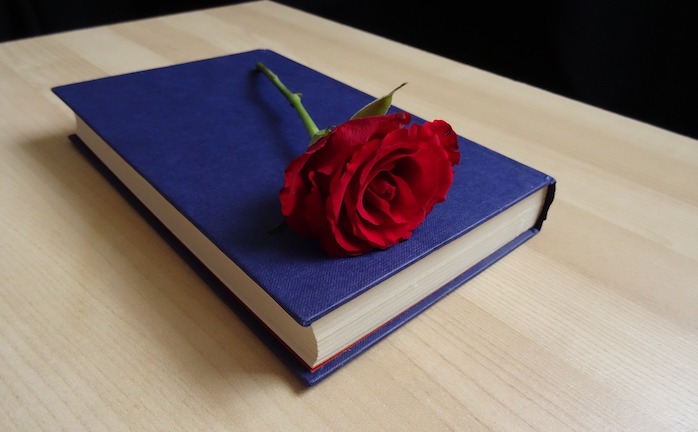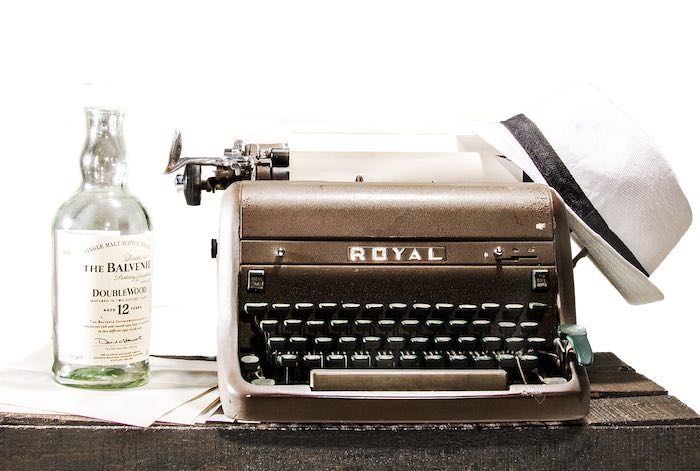Authors on Writing, and Getting Published
10½ Tips for aspiring writers culled from the websites of successful writers of romance fiction.

Aspiring writers, publishers and journalists often seek advice on writing prose from writers of literary fiction but, as Stephen King noted in his book On Writing, fewer deem it important to seek the same advice from popular authors - the folks that sell the most books.
I took King's comments to heart, and thought that perhaps authors who write romance fiction, which accounts for 40% of all popular fiction sold, could give the most practical advice of all.
To that end, I took a browse through the sites of several romance novelists, and found some very good advice that's applicable to authors of any sort of fiction. Here's the top ten (and a half):
- Write every day, and in a workspace that's private and exclusively yours.
"That might be just a corner of the kitchen where you can sit undisturbed with a notepad and pencil or a word processor, or an extra bedroom that also doubles as your sewing room."
Rosanne Bittner
- Make your characters come alive!
"Contrary to popular opinion, romance characters cannot be built from a laundry list of admirable qualities. Like characters in any other fiction, they must be as real as possible. You have to make it seem as if you know these people. The reality is, good writing consists of creating "real people" characters and throwing them into your fictional situations."
Sabrina Jeffries
- Make your characters talk like real people:
"We're human. When upset, we speak in fragments. Clipped tones. To convert the emotion to the writing, use short, terse sentences and paragraphs. Forceful verbs. No frills. No fluff. Nothing to slow the reader down."
Melanie George
- Pay attention to your characters' names.
"I usually spend at a least a day trying names on my latest characters before I begin writing. Sometimes if a book does not go well it is because I have chosen the wrong name for a character. So give it careful thought."
Daphne Clair
- Do your research:
Unless you're writing a comedy, you don't want your readers laughing at you, so make sure you get your facts straight. Jo Beverley's Web site lists a number of books she finds helpful. She writes, "I value a lot of original sources -- diaries etc -- and illustrations of the period. I stopped to wonder one day why, when I do dig into meaty texts, so many of my treasured books are very visual. I decided that my creativity is very visual. I have to be able to look into the past, and I need all the help I can get!"
Jo Beverley
Other writers prefer to tie research into a vacation. "My husband and I make also frequent research trips to the locales I'm writing about so that I can get a "feel" for the settings. In turn, places I have visited and even seemingly minor footnotes in the history books have sparked "what ifs" for future books. "
Rosanne Bittner
- Editing is essential, but don't let it interfere with your creativity.
"Don't let your editing side take over while you're creating and vice-versa. The editing side will cramp your style while you're creating; the creative side will try to convince you that your bad grammar is really just creative. Getting these two to work together is a major feat, but until you convince them to help and not hinder each other, you won't get any work done."
Sabrina Jeffries
- Conflict is good:
"In romance, you must make sure that the hero's personality and the heroine's are designed to clash. But even in other genres, there needs to be clash between the various characters to make them interesting."
Sabrina Jeffries
- Make sure your query letters are brilliant:
"The query should give the editor an idea of your story (and a sense of the way you're handling it) that's clear enough to help her decide if it's worth considering. If the idea sounds good, you know the complete manuscript (or sample chapters) will enjoy a prompt and careful reading."
The Fiction Writer's Page
-
Don't make your query annoying:
"NEVER ever resort to emotional black mail. Never include any suicidal tendencies you may have. Never mention that your children will starve and die in the streets with crooked teeth and ragged underwear if you don't make a sale soon. It doesn't work."
Rosalyn Alsobrook - Writing a synopsis will help you as much as it helps acquisitions editors
"A synopsis is that horrible-to-face condensation that tells your story to an editor in as few pages as possible"
"When writing a synopsis for any romance, be clear as to the level of all sensual/sexual activity: "That kiss leads to a very sensual lovescene that is interrupted just as the hero...."
Rosalyn Alsobrook
- Don't Be Afraid to Fail:
"Writers are the ultimate at having the courage to fail. Think about it: despite rejections, pressure from our friends and/or family to "not write smut" (apparently they have no idea the quality or type of our work!) or "get a real job" we still get up day after day, return to our computers and hammer away at our writing."
Becci Davis Clayton
Read These Next
Experience + Research = Credible Writing
Credible writing starts with sound research. Then use your own experience to develop your material and you will write more authentically.
Beginning and Ending Your Story
Elinor Glyn, in the early half of the 20th century, considered the "world’s greatest writer of love stories." Over the course of her writing career she published 31 novels and had 9 movies made from her work. She was criticized rather frequently by the literary press, as are many popular writers today. In 1922, The Author’s Press put out a four volume course written by Glyn on how to write novels, stories and screen plays. This is an excerpt from the second volume.
Get Ahead with a Travel Writers Association Membership
While travel bloggers and influencers can achieve success on their own, joining a travel writers association can provide numerous advantages to help take their careers to the next level.






